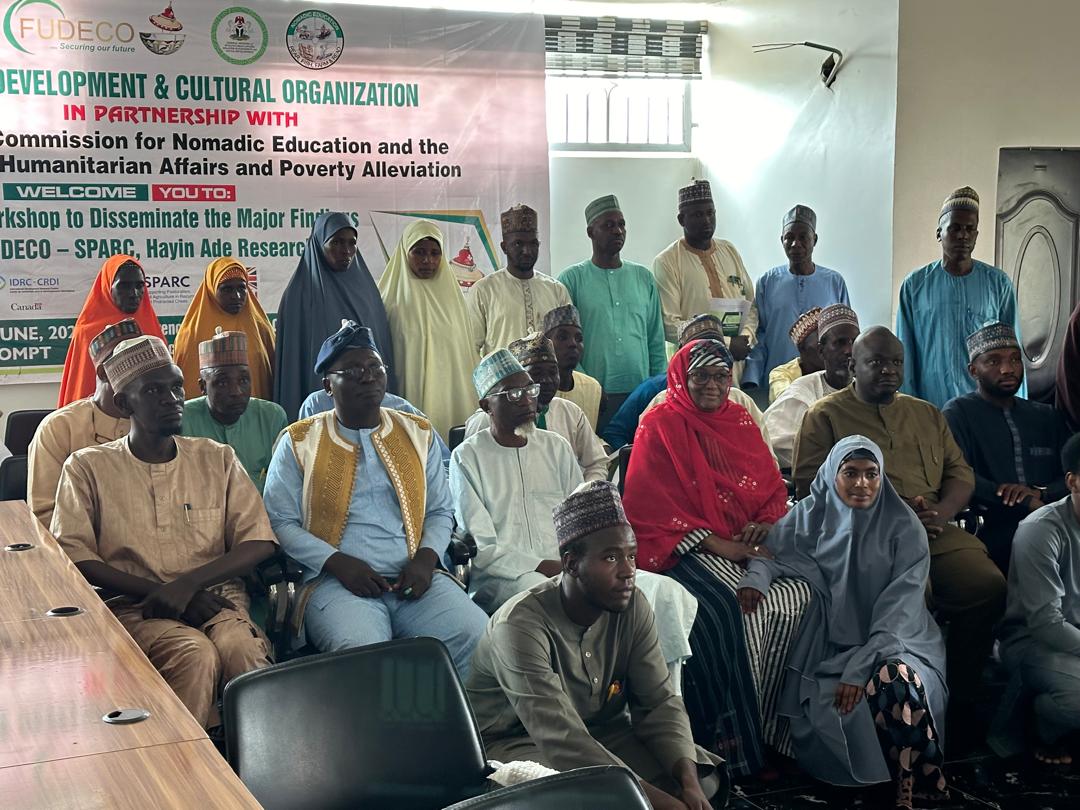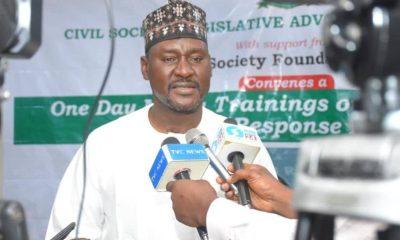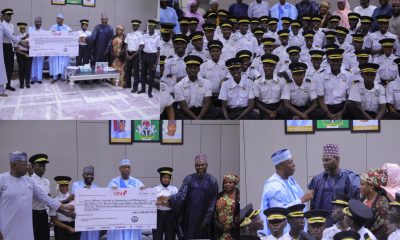News
Research Highlights Impact Of Conflict On Fulani Herders In Northern Nigeriain Maintaining National Security

By Abdullahi Alhassan, Kaduna
The Fulbe Development and Cultural Organization (FUDECO), in collaboration with the National Commission for Nomadic Education and the Ministry of Humanitarian Affairs and Poverty Alleviation, held a one-day workshop in Kaduna.
The event aimed to present the major findings from a joint research project conducted by FUDECO and SPARC in the Hayin Ade community, Kubau Local Government Area.
In her opening address, Dr. Nafisat Dahiru, Chairperson of FUDECO, welcomed stakeholders from government agencies, academia, civil society, and the media.
She emphasized that the workshop was convened to share important data on the root causes and impacts of the long-standing conflict between farmers and herders.
“This research was carried out to understand the losses experienced by Fulani cattle rearers as a result of cattle rustling, forced migration, banditry, and other violent attacks across the country Dr. Dahiru said. “Many herders have lost not just their livestock, but their homes, livelihoods, and in many cases, their lives.”
She stressed that despite being among the most peaceful and tolerant communities in Nigeria, Fulani nomads continue to face growing discrimination and social stigma. “This gathering is meant to encourage dialogue and mutual understanding so we can work toward peaceful solutions to the herder-farmer crisis,” she added.
FUDECO, over the years, has been engaging Fulani communities to promote peaceful coexistence, justice, and social inclusion. Dr. Dahiru noted that the organization is committed to producing evidence-based research to shed light on the challenges faced by herders across Nigeria.
“With the support of SPARC—a group that supports marginalized communities—we completed a field study in Hayin Ade. Rather than leave our findings in storage or office shelves, we chose to present them to all key stakeholders,” she explained. “This includes policymakers, researchers, legal experts, and the media.”
She also revealed plans to replicate the research in other areas where FUDECO operates, with the goal of raising awareness about the daily realities Fulani pastoralists face.
Mr. Ako Alexander, Deputy Director of Civil Litigation at the Kaduna State Ministry of Justice, also spoke during the event expressed strong support for the initiative, saying such engagements help reduce conflict and improve public understanding.
“These kinds of discussions are vital to promoting peace and addressing the root causes of insecurity,” he stated. “Building bridges between farmers and herders is key to ensuring long-term stability in the region.”
The research presented at the workshop highlighted severe challenges in Hayin Ade. Over 95% of residents in the area and surrounding settlements are agro-pastoralists. Fewer than 5% are strictly crop farmers without livestock. The majority reported losing livestock due to conflict, insecurity, and banditry in other parts of Kaduna and neighboring states.
One respondent shared that he lost all his cattle seven years ago in Baguiwa due to cattle rustling. Others spoke of gradual losses over time due to various crises and a lack of grazing access.
Historically, Hayin Ade was a dry-season grazing area. About 45 years ago, it began transitioning into a settled community. Once considered a haven for pastoralists, the area has now seen traditional grazing lands and stock routes overtaken by crop farming, leading to growing land-use conflicts.
The report calls for urgent attention to land management, the preservation of grazing routes, and inclusive policy dialogue involving all affected communities.













